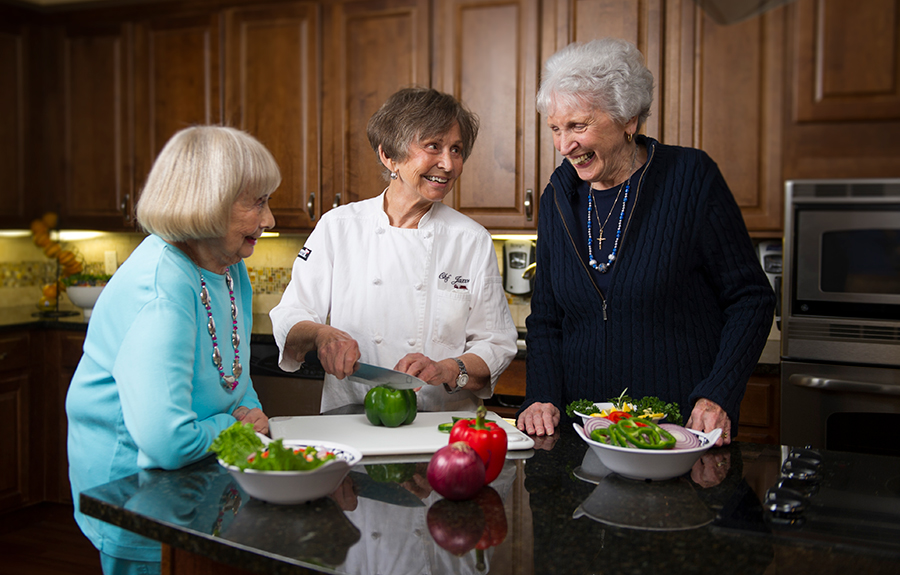Dietary needs change, as we grow older. With March and National Nutrition Month in the rear view mirror it’s still important to focus on healthy eating habits and senior nutrition. Here are nutrition recommendations as advised by the Academy of Nutrition and Dietetics.
INCREASE INTAKE OF CALCIUM AND VITAMIN D
Calcium and vitamin D rich foods “help maintain bone health,” as highly recommended by the Academy of Nutrition and Dietetics. Foods with beneficial levels of calcium and vitamin D include:
- Nutrient rich cereals
- Dark green leafy vegetables
- Low-fat or fat-free milk
- Yogurt
SWITCH WHITE FOR WHOLE GRAIN
Weight gain in older age is common and can be hard to maintain. Fiber-rich foods provide the opportunity to help control weight along with many other benefits such as lowering cholesterol movements.* By switching from unhealthy cereals and white breads to whole grain cereals and breads is an easy and manageable way of adding more fiber to your daily intake.
INCORPORATE VITAMIN B12 IN MEALS
Vitamin B12 works to “keep the body’s nerve and blood cells healthy” and also fights against a type of anemia that causes fatigue.* As we age, the National Institute Health suggests that our intake of vitamin B12 should increase. Foods rich with Vitamin B12 are found in lean meats and seafood and can help boost senior nutrition.
*Source: Mayo Clinic, NIH

